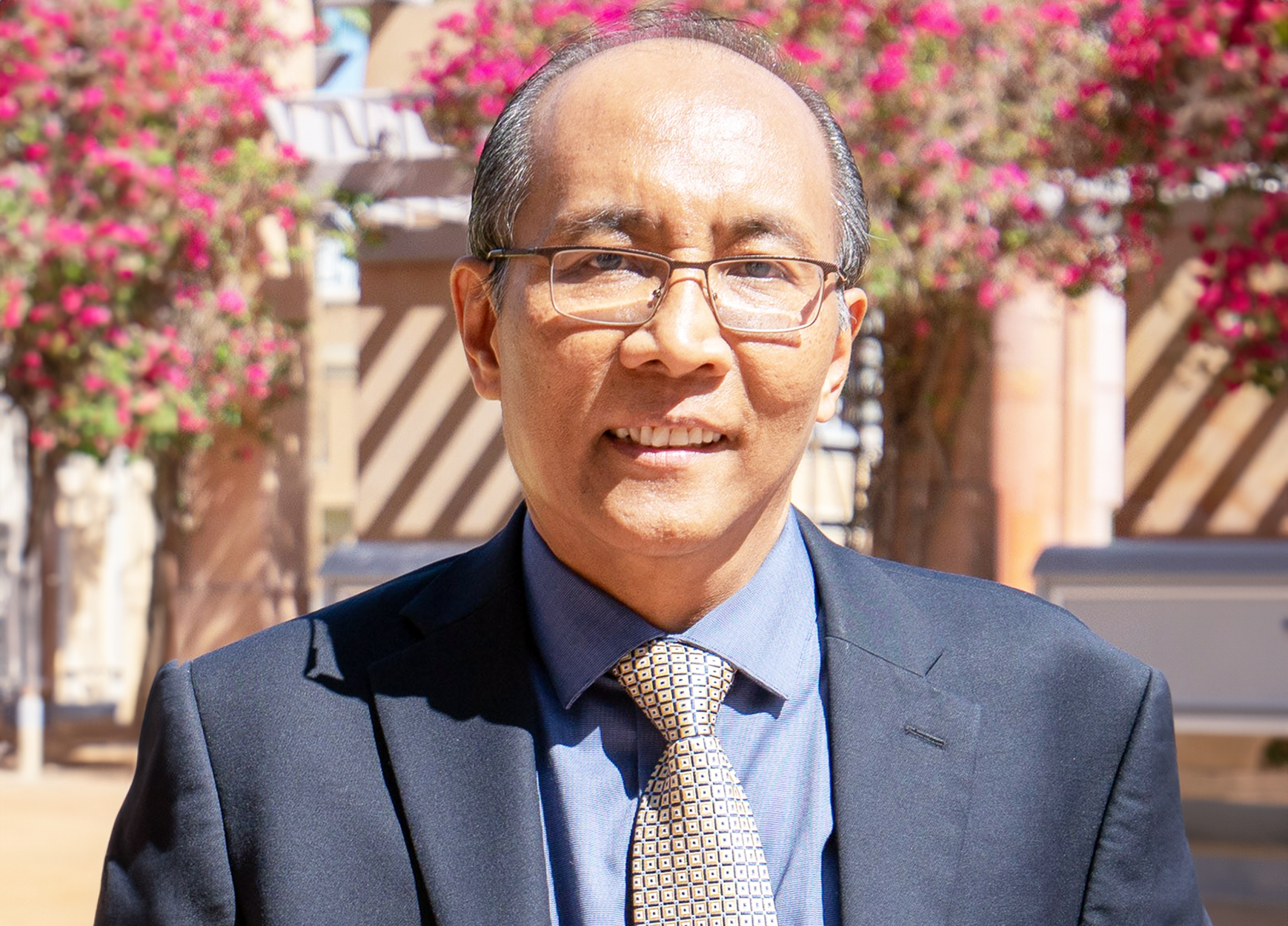Matt Joyce | January 23, 2024

Texas State University professor Soe Myint, Ph.D., is embarking on a three-year project with researchers across the nation to promote climate resiliency in eight Southeast Asian countries.
Myint and an interdisciplinary team of academics from Tufts University, Michigan State University, Yale University, and the University of Illinois Urbana-Champaign are collaborating on the project, which is funded by a $1.7 million grant from NASA’s Land-Cover and Land-Use Change Program. Together, the researchers will aggregate demographic and socioeconomic data, remote-sensing images, and other geospatial products that have been collected in recent years to support policy makers in their efforts to help Southeast Asian cities cope with issues like droughts, flooding, air pollution, and warming climate.
“Our job is to find the areas that badly need help to minimize air pollution or mitigate heat islands or urban heat extreme and drought conditions,” Myint said. “We can help urban planners and policy makers with their planning to make relevant decisions for a better society and sustainable future.”
Myint is the Meadows Endowed Chair Professor in the Department of Geography and Environmental Studies and the chief conservation for the Meadows Center for Water and the Environment.
The study, titled “Decoding Land Transitions across the Urban-Rural Continuums (URC): A Synthesis Study of Patterns, Drivers, and Socio-environmental Impacts in Southeast Asia,” focuses on 19 cities within the countries of Vietnam, Thailand, Indonesia, Malaysia, Philippines, Myanmar, Cambodia, and Laos.
“This is a synthesis project,” Myint explained. “We already have done quite a lot of research and studies in the region. We will build on all these existing databases and models and results and then go for everything together and work interactively and contribute better with the further analysis and synthesis that and then come up with better management plans.”
Myint, who will recruit a postdoc researcher to support the project, will research how socioeconomic parameters correlate with outdoor water use, drought, air pollution, and land surface temperatures. Using remote satellite sensing, Myint can gather information on drought, water use, air pollution, and heat over time. With this insight, researchers can make suggestions on strategies such as planting trees, shrubs, and trees in urban environments to mitigate heat, pollution, and drought conditions.
“Heat is the number one killer in the world,” Myint said. “When [policy makers] are trying to fix an urban heat island or drought conditions, they do not know exactly where to grow these green vegetations because they may not have any idea what is going on with regards to which neighborhoods, income levels, populations or marginalized societies need more vegetations for protection against these disasters.”
Myint will travel to Indonesia and Malaysia in July for a research and data collection trip with his project colleagues. This follows a trip in December to conference of the American Geophysical Union, where he presented his findings on similar analyses in the Phoenix metro area.
Also this year, Myint will give the John Jensen Distinguished Lecture at the American Association of Geographers April meeting in Hawaii. He said he plans to talk about this NASA-funded project as part of his lecture.
Share this article
For more information, contact University Communications:Jayme Blaschke, 512-245-2555 Sandy Pantlik, 512-245-2922 |
